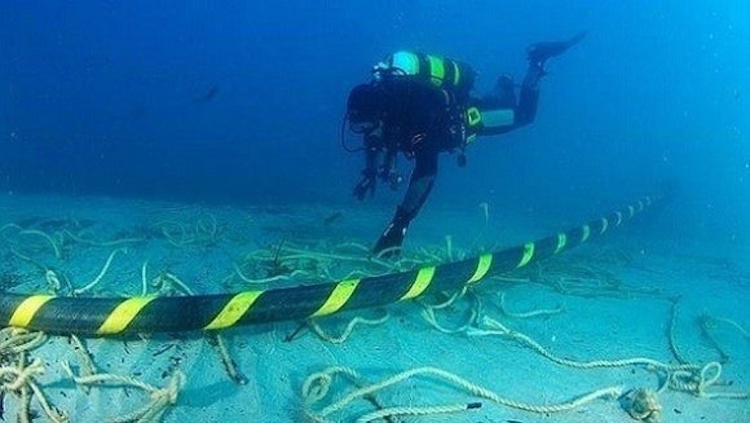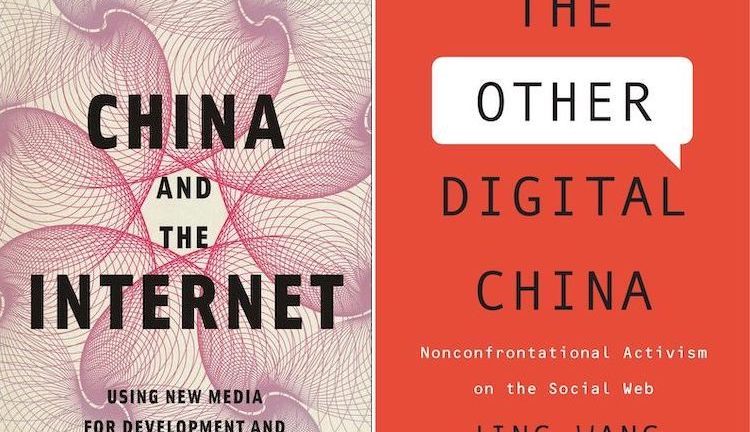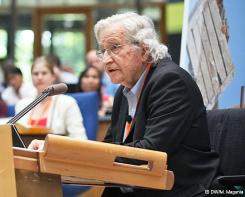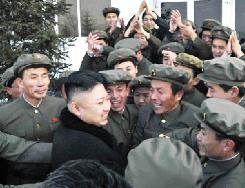By Azu Ishiekwene The writer is the Editor-In-Chief of LEADERSHIP and the author of Writing for Media and Monetising It. This modified version of AI-Generated Storytelling: Opportunities and Challenges was based on my presentation at the 20th Annual Conference of the NGE on 8 November 2024. ABUJA | 14 November 2024 (IDN) — One year […]
Africa: Undersea Cable Damage Disrupts Internet
By Lisa Vives, Global Information Network NEW YORK | 17 March 2024 (IDN) — What is a world without a phone? Without long-distance service? Without a digital cellular network? It’s hard to imagine since billions of people across the globe can now call relatives, do business or exchange information without having to put it in […]
Online Activism in China
By Jan Servaes BANGKOK| 15 March 2024 (IDN) —There are already more than 1 billion netizens in China, more than 3 times the population of the USA and almost one and a half times that of Europe. This means that about 20% of the world’s internet users, or almost 1 in 5, live in China. […]
Impact of Social Media: Trivialization of Pakistani Society
Viewpoint by Hamid Ali Khan BISHKEK, Kyrgyzstan. 13 August 2023 (IDN) — The prevalence of social media has snowballed in recent years in Pakistan, ushering in a new era of digital interconnectedness. But with this technological advancement comes the unintended consequence of trivializing Pakistani society. Social media platforms like YouTube, Twitter, TikTok, and Facebook have […]
Report Highlights Importance of Digital Economy
By Krishan Dutt | IDN-InDepthNews Report
PARIS (IDN) – The 34-nation Organisation for Economic Co-operation and Development (OECD) faults rich and emerging countries of the bloc for lack of a national strategy on protecting online privacy or funding research in this area. This, it says in a new report, tends to be viewed as a matter for law enforcement authorities to handle.
The report titled OECD Digital Economy Outlook 2015 however notes that Information and Communication Technologies (ICT) are transforming the ways social interactions and personal relationships are conducted, with fixed, mobile and broadcast networks converging, and devices and objects increasingly connected to form the Internet of Things (IoT).
Commercialisation of Children’s Media Hampering Global Citizenship
By Kalinga Seneviratne* | IDN-InDepth NewsReport
KUALA LUMPUR (IDN) – Excessive commercialization of children’s media, especially television, is obstructing efforts aimed at education and capacity building for global citizenship and raising awareness among children of the diversity of the world, according to experts.
Many of the speakers at the recent World Summit on Media for Children in Kuala Lumpur agreed with Dr Patricia Edgar, former director of the Australian Children’s Television Foundation, that the majority of children’s programmes are commercially driven and not educational.
Genuine Democracy Needs Responsible Media
By Ramesh Jaura | IDN-InDepth NewsAnalysis
BERLIN (IDN) – When Erik Bettermann, the outgoing director-general of the German international broadcaster Deutsche Welle, launched the Global Media Forum in 2008, he had an ambitious aim: to institute a ‘media Davos’ on the banks of the river Rhine. The recently concluded sixth Forum has indeed achieved that aim. It imbibed the essential spirit of the World Economic Forum in the Swiss Alps and manifested alternative approaches guiding the World Social Forum.
More than 2,500 participants comprising representatives of mainstream, government controlled, alternative and social media as well as non-governmental organisations (NGOs) and academia from over 100 countries attended the three-day conference from June 17 to 19, 2013 in the post-war historic city of Bonn and exchanged views on ‘The Future of Growth – Economic Values and the Media’ in some 50 workshops. They agreed that citizens are the key drivers of change, and that the media must build up an informed citizenry without which democracy would remain a farce.
Asia Prefers To Quietly Calm Down North Korea
By Kalinga Seneviratne | IDN-InDepth News Analysis
SINGAPORE (IDN) – While the Anglo-American international media has been beating the war drums on North Korean leader Jong-un’s threats to fire missiles at American bases in the region, commentaries in Asian newspapers have focused on why nobody in the region wants war and that trouble makers must be quietly calmed down.
Late March, President Kim, approved a plan to attack the U.S. mainland, Hawaii and Guam if the United States attacks the country. The Rodong Sinmun, the official newspaper of North Korea’s ruling party, listed U.S. military bases in Yokosuka, Kanagawa, Misawa, Aomori and Okinawa in Japan as potential attack targets.







